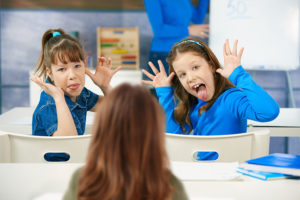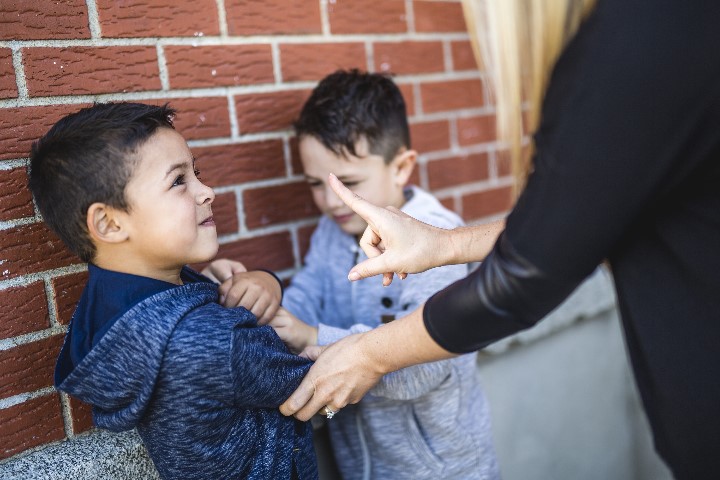Linda Ryden is a “peace teacher” at Lafayette Elementary School, and she contends her job “has never felt so important.”


Linda Ryden is a “peace teacher” at Lafayette Elementary School, and she contends her job “has never felt so important.”
Ryden recently explained her unique role at the Washington, D.C. school in a column for The Washington Post, detailing how her work to resolve conflicts between students ultimately developed into something more profound.
“I started out 15 years ago teaching conflict resolution, but I realized that children had a hard time remembering how to use conflict resolution skills when they are in a real conflict and are actually angry. They didn’t have any skills to help them recognize their emotions and calm down enough to work things out peacefully,” Ryden wrote. “This is what led me to bring mindfulness into my classes.”
Years ago, students dubbed Ryden the ‘peace teacher,’ a title she’s embraced.
Ryden argues that recent school shootings highlight the importance of teaching students to make good decisions and maintain healthy relationships – a realization that’s also fueling interest in social and emotional learning programs in schools nationwide.
At Lafayette Elementary, Ryden explained that her sole focus is to help students to process their emotions to maintain their composure and share kindness and compassion with their classmates. Through individual talks, a weekly peace class for all of the school’s 500 students, and other measures, students are learning to think before they act and work out their problems peacefully.
“What started out as a little experiment quickly grew into a schoolwide program with all classroom teachers leading daily ‘mindful moments,’” Ryden wrote. “We even have an alternative recess space called ‘peace club,’ where kids can go do decompress.”
“In class, we turn out the lights, and I tell students to count breaths or focus on one of their five senses. It calms them down and allows them to connect with their emotions and think about their bodies. They become more aware of their feelings and learn how to recognize anxious thoughts but not be consumed by them — the foundation of emotional smarts,” she wrote.
After only one year, the results have been encouraging. Researchers at the Institute for Advanced Studies in Culture can help explain why. Two important aspects are demonstrated here. First, individual character change happens when there is change in the surrounding culture. Many character programs wrongly focus merely on the individual. But individual character change happens when the group is aligned. So the fact that the weekly peace class is offered to all of the school’s 500 students is significant.
Second, too many character programs focus on the psychological preconditions or the thinking processes without any content specific moral direction. Here the focus on mindfulness is coupled with an emphasis on kindness and compassion. It is not a morally neutral process but one with content and direction. The proof is in their outcomes. For more on this perspective on character formation see James Davison Hunter’s book, The Death of Character: Moral Education in an Age Without Good or Evil.
Reports of fights and bullying are down, and Ryden contends students are more focused and calmer, kinder and more compassionate.
“Some students started telling me they were even doing (mindfulness practices) at home to relax or fall asleep at night,” Ryden wrote. “Kids said mindfulness made them feel kinder, less nervous, more confident and better rested.”
She believes the focus on mindfulness, as well as character virtues like kindness and compassion, deserve as much attention in helping to protect students against school shooters and other threats as increased security measures and armed officers.
“I see schools spending more and more money on guards and staff whose sole purpose is to break up fights and discipline kids. Instead, how about getting to the root of these problems?” Ryden questioned. “Yes, we must make sure our schools are physically safe. But we also need to be sure our kids have the skills to deal with these difficult emotional times.
“Of course, no amount of school-based intervention can completely compensate for serious problems in the home or the community, but I believe we owe it to our students to give their hearts as much attention as we give their heads.”
The UK’s Jubilee Centre for Character and Virtues provides resources for educators on character formation curriculum.